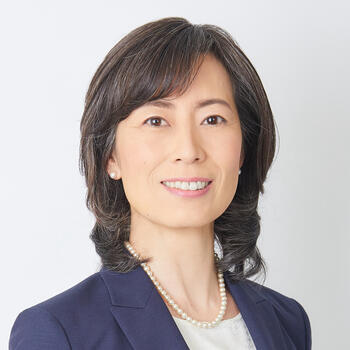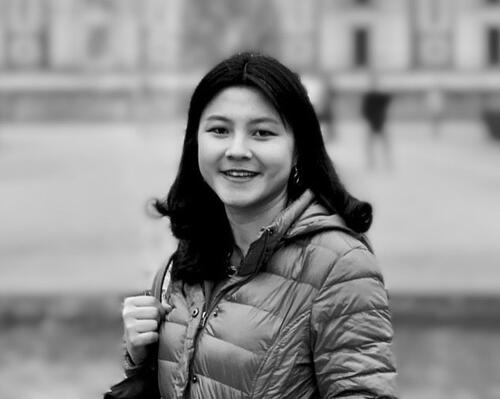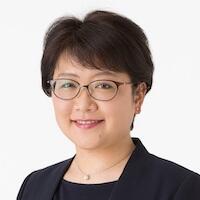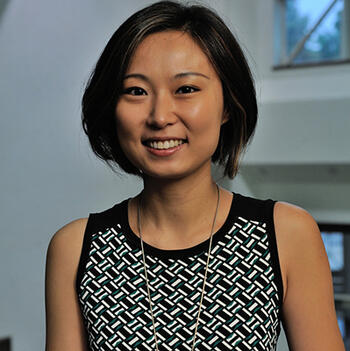Gi-Wook Shin on Gwangju and South Korea’s Democracy
This Q&A first appeared in The Diplomatmagazine.
The Gwangju Uprising of May 18-27, 1980, was a pivotal step in South Korea’s march toward democratization. After protesting students were brutally attacked by soldiers, the people of Gwangju joined in armed resistance against the martial regime of Chun Doo-hwa, who had seized power in a coup. The uprising was put down by government troops; the final death tally remains hotly debated, but most academic estimates place it at over 1,000 dead.
The public outrage sparked by the incident sowed the seeds of Chun’s downfall, though it would take another seven-plus years for South Korea to hold its first democratic presidential election.
The Diplomat interviewed Gi-Wook Shin – the director of the Walter H. Shorenstein Asia-Pacific Research Center and the founding director of the Korea Program, both at Stanford University – about the legacy of the Gwangju Uprising in South Korea, and how it resonates today. Shin is also the William J. Perry Professor of Contemporary Korea; a senior fellow of the Freeman Spogli Institute for International Studies; and a professor of sociology, all at Stanford University.
The Gwangju Uprising was in 1980; South Korea would finally hold democratic elections in 1987. What role did the Gwangju Uprising — and the resulting massacre — play in South Korea’s democratization process?
The tragic outcome was a brutal wakeup call to Korean democratic movements. Their failure in 1980 called for a new movement strategy to build an alliance between students/intellectuals and grassroots citizens. This alliance became instrumental in successfully organizing and mobilizing the masses in the summer of 1987, when millions of people marched together for democracy. Gwangju also became a symbol of the struggle for freedom and human rights throughout Korea’s democratization.
The massacre also created serious legitimacy problems for the Chun regime throughout its tenure. Chun was widely portrayed as the only ruler in Korean history who mobilized government troops to kill their own innocent citizens. It was almost impossible to justify extending autocratic rule beyond his regime, and Chun and his military colleagues had to accept democratic reform and elections in 1987.
Finally, the massacre provoked anti-American sentiments and movements in the 1980s during pro-democracy movements. Largely pro-American until then, Koreans expected the U.S. to support their fight for democracy – in fact, the Carter administration pressed the Park Chung-hee regime to improve human rights and political freedom. However, Koreans were disappointed and angry that the U.S. did not stop the Korean military, which was under the U.S. commandership, from killing innocent citizens. While there existed controversies over the extent to which the U.S. was complicit in the tragic incident, the U.S. was no longer deemed an ally in their fight for democracy but just another neocolonial power supporting dictatorship.
Both Chun Doo-hwan and Roh Tae-woo were sentenced to prison for their roles in the Gwangju massacre, among other charges. Both former presidents, however, were pardoned in 1997. Chun and Roh passed away in 2021, eliminating any possibility of an apology. Is there still a sense of “unfinished business” or a lack of closure after the massacre of May 1980?
Gwangju became the most important issue of transitional justice in the democratic era and victims were compensated through a special law, while perpetuators such as Chun and Roh were punished. The uprising was officially recognized as “Gwangju Democratization Movement,” and May 18 is celebrated as an unofficial memorial day in Korea.
However, there remains a sense of lack of closure. Besides the two former presidents passing without making an apology, there has been little progress on efforts to recognize the “May 18 Democratization Movement” in the preamble of South Korea’s constitution. President Yoon made campaign promises to support such recognition, and if/when this happens, it will be an important step toward a final closure.
Gwangju’s legacy remains contested. The far-right claims (as Chun did until his death) that North Korea was behind the unrest and that death counts were overblown. Is this a fringe view, or does it resonate more broadly with South Korea’s conservatives?
Gwangju’s legacy is now much less contested, and such a view is held only by the far-right minority. Presidents of conservative administrations such as Lee Myung-bak and Park Geun-hye attended the May 18th Memorial Services held in the city and the main conservative party apologized for its past members (far rightists) who “defamed” and “insulted” the Gwangju movement a few years ago.
President Yoon visited the city to pay a tribute to the victims during his presidential campaign and attended this year’s memorial services on May 18. Furthermore, his cabinet members and presidential advisers, as well as National Assembly members of his party, all accompanied him to the service. This shows a broad consensus about the meaning and legacy of Gwangju in Korean society, regardless of political or ideological orientation.
How does the legacy of the Gwangju Uprising reflect a broader disagreement in framing the legacy of South Korea’s past dictators? For example, after Chun’s death Yoon Suk-yeol – then a candidate, now South Korea’s president – praised the former dictator for being “good at politics.”
There certainly exists a nostalgia among some conservatives in South Korea who believe that leaders like Park Chung-hee and Chun Doo-hwan did well in improving the nation’s economy, while being authoritarian. Yet even those people would not contest the tragic nature of the uprisings and their aftermath.
Yoon’s comment was made as an attempt to explain that even though he does not have much experience in politics, he could do well by relying on able technocrats, as did Chun. I don’t think he meant by it that he supports dictatorship, and he immediately made an apology for his remark.
How does South Korea’s struggle for democracy factor into modern day politics, especially as the generation directly involved are aging out of the political sphere? Does the legacy of the Gwangju Uprising resonate with young South Koreans?
Democratic activism has become a valuable type of political capital since democratization, and former activists have become the ruling elite of the progressive governments, especially in the Moon Jae-in administration. As these so called “386 generation” activists (those who were born in 1960s, entered college in the 1980s, and were in their 30s at the time of their activism) became the power elite, however, they acted no differently than their conservative counterparts. After all, they were accused of simply becoming another new establishment.
As a result, after the Moon administration, past activism lost moral ground and is no longer valued as political capital. As I pointed out elsewhere, the former activists played a crucial role in bringing in democracy but have since stopped short of advancing liberal democracy in Korea.
As far as I know, the legacy of the Gwangju Uprising does not resonate much with young South Koreans – it is just part of Korean history.
What is the relevance of the U.S. approach to the Gwangju Uprising for the modern-day relationship? Does past U.S. support for South Korea’s dictators, despite the bloodshed at Gwangju, still rankle?
Charges of U.S. complicity in the Gwangju massacre and the subsequent rise of anti-Americanism in Korea undoubtedly concerned American policymakers. When millions of people filled the streets again demanding democratic reform in the summer of 1987 with such anti-American slogans as “Yankees, Go Home,” the U.S. was deeply concerned. This time the Reagan administration moved decisively by sending Gaston Sigur, an assistant secretary of state, to Seoul to meet with Chun, who was considering mobilizing armed forces once again to resolve the crisis. The U.S. seemed to learn lessons from what had happened in Gwangju seven years prior. Pressured by the Americans, Chun cancelled plans to crush the opposition by using military force and granted political concessions that paved the way for a democratic transition in Korea.
Still, anti-Americanism continued to rankle U.S.-ROK relations for many more years that followed. In 2002 when two Korean school girls were killed by U.S. military vehicles during the military exercises, for instance, another wave of anti-Americanism swept the country and the progressive candidate Roh Moo-hyun, who took a tough stance toward the U.S., won the 2002 presidential election.
Since then, however, anti-American sentiments gradually declined, and now the majority of South Koreans do not any longer hold resentment against the U.S. On the contrary, an increasing number of South Koreans support a stronger alliance with the U.S. in the face of rising China. The new Yoon government is expected to join the U.S. in defending a liberal international order that is threatened by autocratic leaders like Putin and Xi.
Read More
“The tragic outcome was a brutal wakeup call to Korean democratic movements.”











![[Left] Radhika Jain, [Right] Postdoc Spotlight, Radhika Jain, Asia Health Policy Program](https://fsi9-prod.s3.us-west-1.amazonaws.com/s3fs-public/styles/727x409/public/hero/postdoc_spotlight_radhika_hero.png?h=c4d9845d&itok=kISYjQHv)















